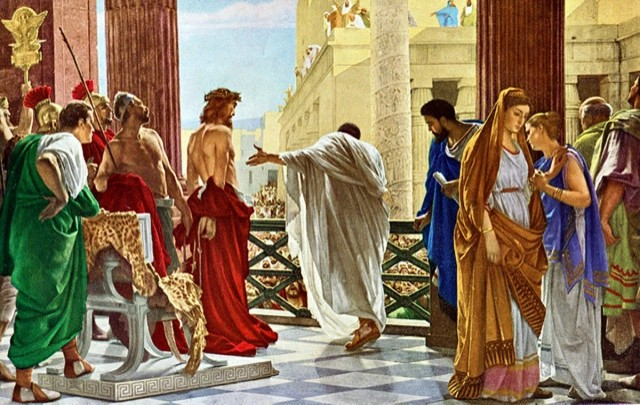𝙅𝙤𝙝𝙣 11:21 𝙈𝙖𝙧𝙩𝙝𝙖 𝙨𝙖𝙞𝙙 𝙩𝙤 𝙅𝙚𝙨𝙪𝙨, “𝙇𝙤𝙧𝙙, 𝙞𝙛 𝙮𝙤𝙪 𝙝𝙖𝙙 𝙗𝙚𝙚𝙣 𝙝𝙚𝙧𝙚, 𝙢𝙮 𝙗𝙧𝙤𝙩𝙝𝙚𝙧 𝙬𝙤𝙪𝙡𝙙 𝙣𝙤𝙩 𝙝𝙖𝙫𝙚 𝙙𝙞𝙚𝙙.”
The would/could/should haves – part of our entitled commentary to God about our take on life after events happen. While it’s perfectly understandable and good to review things that went wrong in order to prevent them from going (as) wrong next time, it’s presumption to read God the riot act. We simply don’t have the equipment or certainly the authority to instruct the Lord of our lives as to how things SHOULD have gone.
For Martha, this was completely in character. Though she followed this statement with “But even now I know that whatever you ask from God, God will give you.” (v 22), that was a self-perceived consolation to the sovereign will of Martha. This was the person who bossed her family around – taking umbrage that her sister Mary would not help her do her frantic, frenetic (and never ending) preparation, cleaning and (re)ordering of things for the guests. No, said Jesus, you can be like that, but Mary will certainly be allowed to sit and listen regardless.
It’s miraculous Jesus did up upbraid Martha – cut her down to size and knock her off her high horse. But he did not. As always, Jesus knew what was in a person, and Martha was hurting inside. We have no history regarding her past, but the need for control and intolerance of things not going according to plan is well understood even in our own lives. Martha had just lost her brother. Among the spectrum of things going wrong, that would be a biggie. Her pain in watching a loved one get sick and die is a well-known human experience. One of the earliest expressions of grief is anger – which blames. There’s little question that Martha had seen loss, along with personal criticism and shame. She felt things deeply.

It would seem a suitable emotional reaction to put Martha in her place, to let her know how selfish her manipulative control really was. But Jesus didn’t do that and it’s remarkable. Instead, Jesus grieved with her and then showed real sovereignty – that of Almighty God – and raised her brother Lazarus from the dead. That’s how God moves in the lives of the bossy, controlling, bullying people – shows them goodness in the dearest way.
It is so easy to sting back the people who dig and weasel and push and scratch their way into ordering your life according to THEIR program. Jesus shows what they need. Hardly acquiescence to their insistent wranglings but kindness in spite of them and in response to them. As usual, Jesus turns the world upside down and heals it. He’s glorious.









